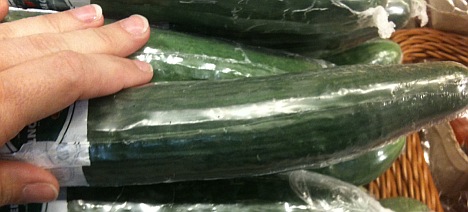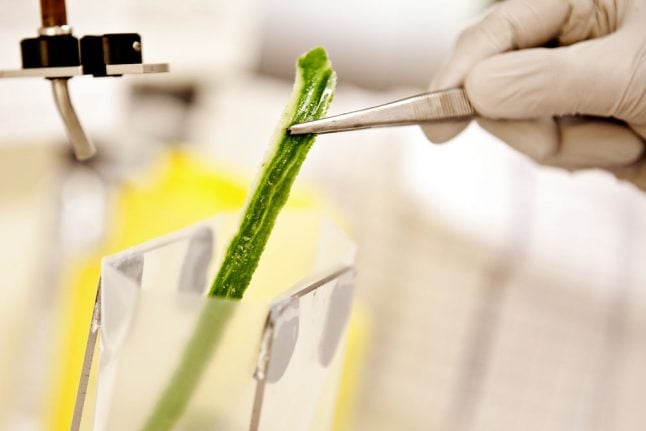“It is very important that companies that handle vegetables, especially cucumbers, track their produce and look into their origins. Companies are responsible for the produce that they sell,” Alexander Sobestiansky of the National Food Administration (Livsmedelsverket) told news agency TT.
After an outbreak of a virulent enterohaemorrhagic E. coli (EHEC) bacteria in northern Germany, the German authorities have been able to trace the infection to two lots of contaminated cucumbers from southern Spain.
So far, there are no indications from Germany that any of the contaminated cucumbers have found their way to Sweden. But the administration still thinks it is important that grocers be vigilant with their vegetables.
“They could have got here through other channels,” Sobestiansky told TT.
If grocers find that any of their cucumbers have originated among the two contaminated lots they should immediately recall them and contact the local authorities, according to Sobestiansky.
The Board also urges any Swede travelling in northern Germany to stay away from uncooked cucumber, tomato and lettuce.
“If you have been in northern Germany recently and experience any symptoms you should contact your health care provider. It is important to mention that you have been to Germany and that there has been an outbreak of EHEC,” Sobestiansky said.
There are still a large number of EHEC cases in Sweden, with 15 new cases reported on Friday.
According to Sofie Ivarsson, epidemiologist at the Swedish Institute for Communicable Disease Control (Smittskyddsinstitutet), more cases are being reported and the number of Swedish sufferers keeps changing.
“The infection is now spread all over the country. But no one has actually caught the infection in Sweden,“ Ivarsson said to TT.
The number of German sufferers of the E. coli complication HUS, haemolytic-uremic syndrome (HUS) has increased to 276, of which two have been fatal.
According to Ivarsson, German authorities haven’t confirmed to them the amount of suspected EHEC-cases reported.
“Normally 5-15 percent of patients infected with EHEC develop HUS, but in Germany the number seems very high,“ Ivarsson told TT.



 Please whitelist us to continue reading.
Please whitelist us to continue reading.
Member comments